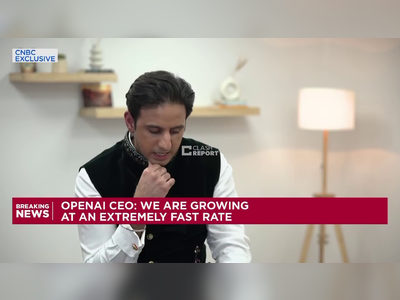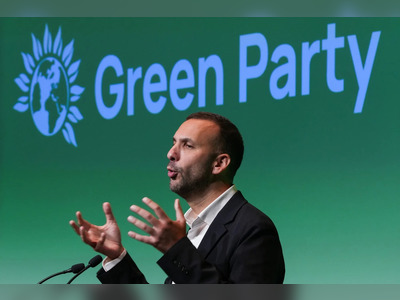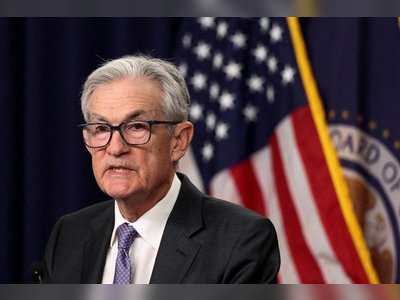
Portugal's Legislative Elections: Moderate Right Secures Narrow Victory
Prime Minister Luis Montenegro's party wins without achieving a parliamentary majority amid rising support for the far-right.
In Portugal’s anticipated legislative elections held on May 18, 2025, Prime Minister Luis Montenegro, leader of the moderate right, secured a narrow victory but, similar to last year's elections, failed to obtain an outright majority necessary for political stability in the Iberian nation.
Exit polls released by public broadcaster RTP indicate that the ruling coalition may have garnered between 29% to 34% of the votes, while the Socialist Party, led by Pedro Nuno Santos, and the far-right party Chega ('Enough') are projected to have received between 21% to 26% and 20% to 24% of the votes, respectively.
Montenegro, a 52-year-old lawyer who has consistently rejected governing with Chega's support, was aiming to form a broader majority by negotiating an alliance with the Liberal Initiative, which appears to have finished in fourth place with about 4% to 7% of the votes.
Preliminary official results, which will be released later in the evening, suggest that the governing coalition could secure between 85 to 96 seats out of a total of 230 in the Assembly of the Republic, falling short of the 116 seats required for an absolute majority.
Even with the possible addition of six to twelve seats from the Liberal Initiative, Montenegro could face challenges in navigating a parliamentary landscape where he may be caught between the Socialist Party and the far-right opposition.
Montenegro's previous administration faced scrutiny regarding potential conflicts of interest, which led him to resign in March.
The electoral outcomes indicate a continued struggle for a stable governing majority, with Montenegro's efforts to call for early elections viewed as a strategic move to evade parliamentary inquiry into a consulting firm linked to his family.
The Socialist Party, which was previously in power for eight years, is likely to be the significant loser of the election, potentially placing it behind Chega as the leading opposition party.
In the outgoing parliament, the governing coalition held only two more seats than the Socialists.
In the past year, Montenegro has implemented various fiscal measures aimed at improving citizens' purchasing power, including increases to pensions and the minimum wage, as well as granting tax relief to youth.
Additionally, he has adopted a stricter immigration policy compared to the previous Socialist government, led by António Costa, which was characterized as one of the most lenient in Europe.
The ongoing rise in immigration has substantially influenced political discourse, with the number of foreigners in Portugal quadrupling since 2017 to now represent around 15% of the 10 million-strong population.
Chega, founded in 2019, has experienced rapid growth, achieving 18% of the vote in March and expanding its representation from 12 to 50 seats in the parliament.
André Ventura, Chega's leader, campaigned aggressively on issues of political corruption and immigration, leveraging the current government's challenges, despite facing personal health issues that interrupted his public appearances.
Ventura’s rhetoric resonated with many voters amid rising concerns over the political elite and the influx of migrant workers from South Asia.
Exit polls released by public broadcaster RTP indicate that the ruling coalition may have garnered between 29% to 34% of the votes, while the Socialist Party, led by Pedro Nuno Santos, and the far-right party Chega ('Enough') are projected to have received between 21% to 26% and 20% to 24% of the votes, respectively.
Montenegro, a 52-year-old lawyer who has consistently rejected governing with Chega's support, was aiming to form a broader majority by negotiating an alliance with the Liberal Initiative, which appears to have finished in fourth place with about 4% to 7% of the votes.
Preliminary official results, which will be released later in the evening, suggest that the governing coalition could secure between 85 to 96 seats out of a total of 230 in the Assembly of the Republic, falling short of the 116 seats required for an absolute majority.
Even with the possible addition of six to twelve seats from the Liberal Initiative, Montenegro could face challenges in navigating a parliamentary landscape where he may be caught between the Socialist Party and the far-right opposition.
Montenegro's previous administration faced scrutiny regarding potential conflicts of interest, which led him to resign in March.
The electoral outcomes indicate a continued struggle for a stable governing majority, with Montenegro's efforts to call for early elections viewed as a strategic move to evade parliamentary inquiry into a consulting firm linked to his family.
The Socialist Party, which was previously in power for eight years, is likely to be the significant loser of the election, potentially placing it behind Chega as the leading opposition party.
In the outgoing parliament, the governing coalition held only two more seats than the Socialists.
In the past year, Montenegro has implemented various fiscal measures aimed at improving citizens' purchasing power, including increases to pensions and the minimum wage, as well as granting tax relief to youth.
Additionally, he has adopted a stricter immigration policy compared to the previous Socialist government, led by António Costa, which was characterized as one of the most lenient in Europe.
The ongoing rise in immigration has substantially influenced political discourse, with the number of foreigners in Portugal quadrupling since 2017 to now represent around 15% of the 10 million-strong population.
Chega, founded in 2019, has experienced rapid growth, achieving 18% of the vote in March and expanding its representation from 12 to 50 seats in the parliament.
André Ventura, Chega's leader, campaigned aggressively on issues of political corruption and immigration, leveraging the current government's challenges, despite facing personal health issues that interrupted his public appearances.
Ventura’s rhetoric resonated with many voters amid rising concerns over the political elite and the influx of migrant workers from South Asia.











